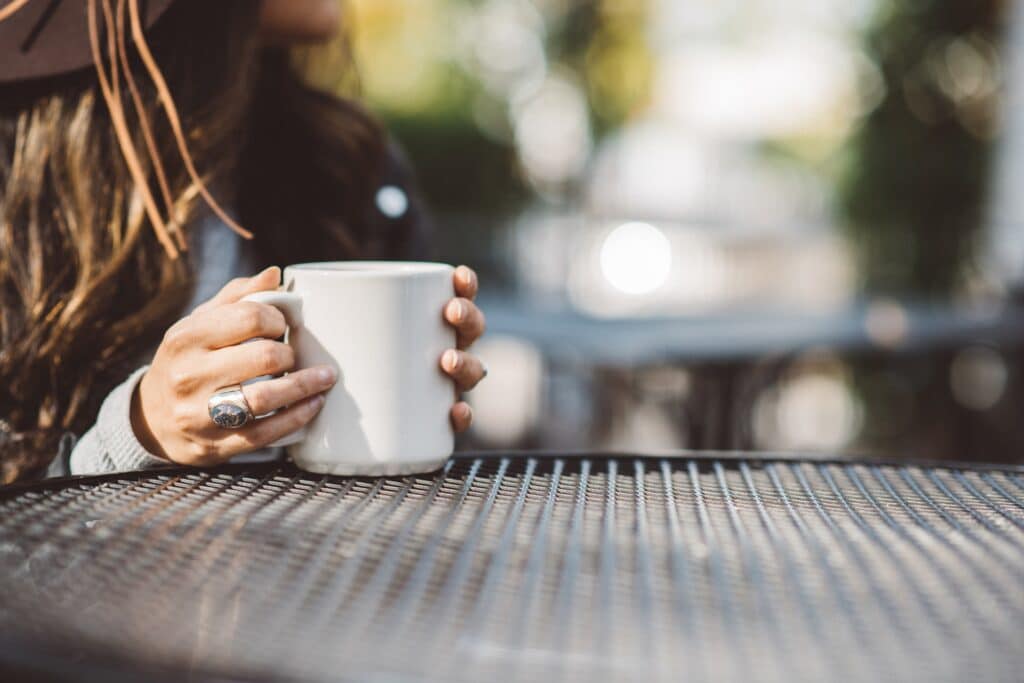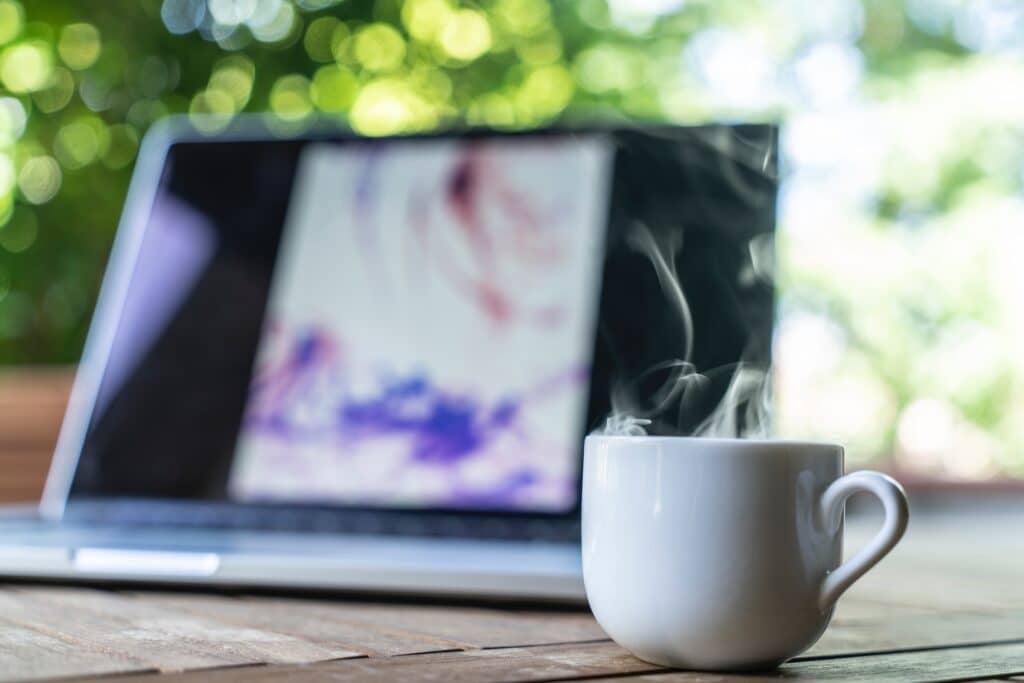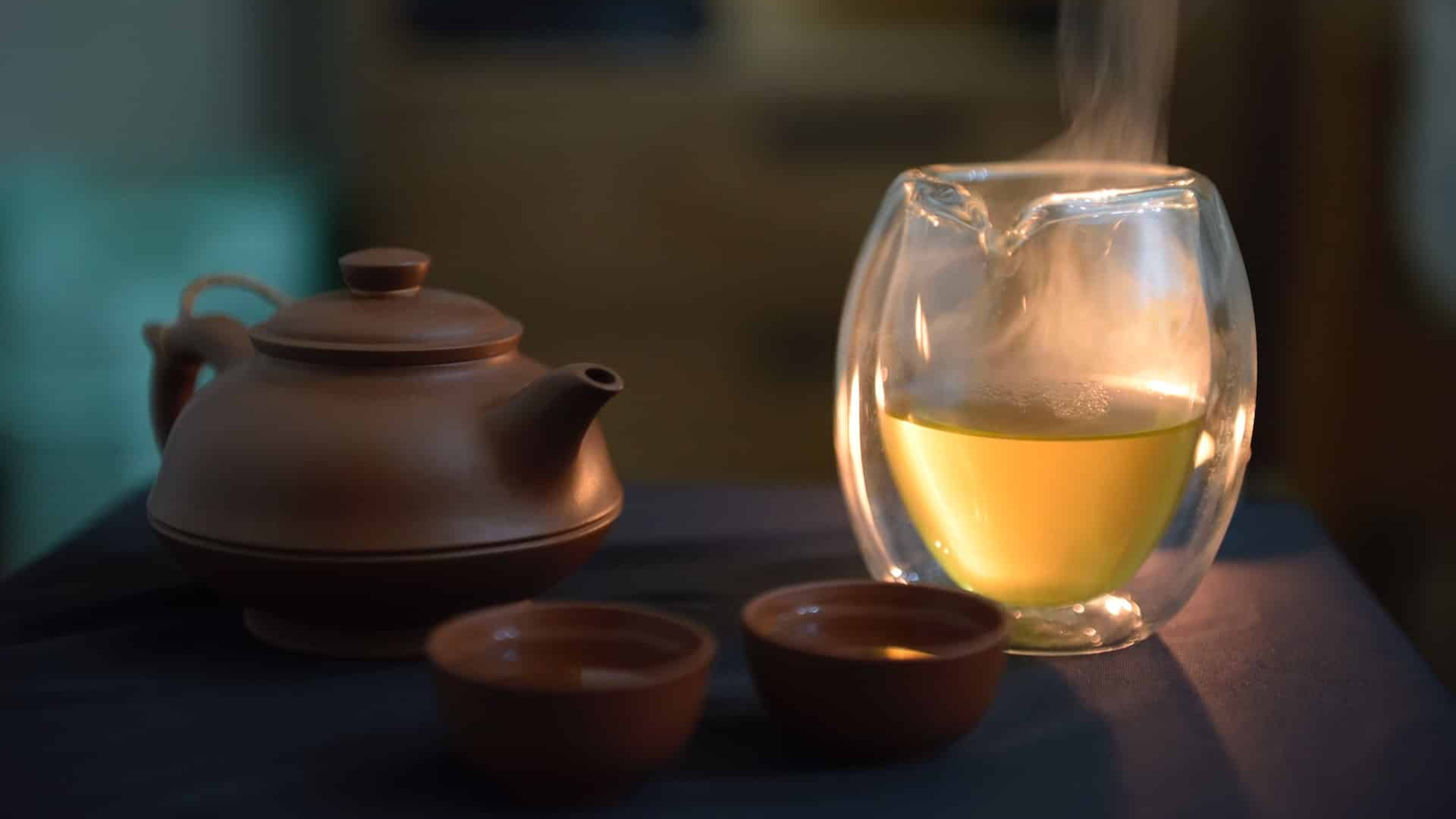If you’re a regular tea drinker, you may have noticed that your toilet visits increase after consuming tea. Some tea drinkers claim they must go to the bathroom more often after imbibing.
So if you have ever wondered, “Why does tea make me pee so much?” This write-up will evaluate the empirical basis for this phenomenon and its many causes.
Why Does Tea Make You Pee?
Tea makes you pee for two reasons:
1. Liquid Makes You Pee
Drinking tea is a kind of liquid consumption. The more water you drink, the more water your body will need to digest and excrete. Simply put, what goes in must come out.
2. Tea Is a Natural Diuretic
The second, more nuanced explanation for why tea causes more frequent urination than water does is as follows:
Caffeine may be present in black tea, green tea, and any other tea made from the Camellia sinensis plant. Consequently, because it’s a well-known diuretic, caffeine prompts the body to urinate more often.
Caffeine is a diuretic because it stops the body from reabsorbing salts. This makes the dissolved salts leave the body through urine. The ramifications of this might be both beneficial and harmful.
Urination serves as a means of maintaining cleanliness and avoiding the accumulation of waste that may otherwise interfere with the body’s normal processes. Yet, an excessive diuretic impact may cause the body to lose vital components and, most importantly, water, leaving the individual weak and dehydrated.
Many people assume that the diuretic impact of the caffeine in tea and coffee nullifies the hydrating effect because of old research. Newer research, however, confirms that the caffeinated water ratio in coffee and tea still benefits hydration.
When you drink tea, caffeine may increase urination, so if that’s a problem, try drinking less. You should talk to your doctor if you have concerns about your body’s well-being, including frequent urination.

Tea and Urination: What the Research Says
• Caffeine’s Diuretic Impact
Caffeine is one of the most well-recognized ingredients in tea that helps it act as a diuretic. Caffeine stimulates the kidneys to produce more urine since it is a natural stimulant. It does this by preventing the kidneys from responding to the hormone vasopressin. Reduced vasopressin levels cause the kidneys to release more water, increasing the volume of urine produced.
• The Function of Theophylline and Theobromine
Tea also contains theophylline and theobromine, which might stimulate the kidneys to produce more urine. Like caffeine, they are stimulants that have a diuretic effect on the kidneys. In addition to its usage as a stimulant, theophylline is often prescribed to patients with asthma and other respiratory disorders.
• Antioxidants and Polyphenol Effects
Antioxidants and polyphenols found in tea have been linked to various health advantages, including reducing inflammation and preventing chronic illness.
On the other hand, some research suggests that these substances may also help tea work as a diuretic by increasing blood flow to the kidneys and making people urinate more.
• Temperature’s Effects
One may modify the diuretic impact of tea by adjusting the temperature. Since drinking hot tea makes you sweat and urinate more, your body’s natural way of cooling down, hot tea may be more of a diuretic than iced tea. Nevertheless, we need additional studies to verify this supposition.
• Effects of Milk and Sugar
Sugar and milk may reduce the diuretic effects of tea. These flavorings do not add to tea’s diuretic action but may indirectly enhance urine production by promoting bowel movements.
Other Factors to Consider
Even though drinking tea may make you go to the bathroom more often, there may be other, less harmful reasons for this. For instance, if you drink a lot of tea, you may not realize how much water you’ve consumed, and that may increase your frequency of bathroom breaks.
The need to urinate often might be a symptom of a more significant health issue. Excessive urination can be a sign of a number of health problems, such as, but not limited to:
- Diabetes
- Calcium levels too high or low
- Infections of the urinary system
- The disease of the kidneys
- Prostate gland enlargement
If you’re worried about your pee output, keeping track of how much you drink and how frequently you urinate might help. You can estimate water loss by keeping track of your weight. Increased urination that lasts for many days should prompt a visit to the doctor.

Does Tea Contribute to the Daily Water Intake?
According to the NHS Eat Well Guide, we should all strive to drink between six and eight glasses of fluid daily. That covers everything from low-fat milk to sugar-free drinks, energy drinks, and coffee.
According to the NHS, you may include tea in your regular water consumption. Supposedly, fruit juices and smoothies count too, but you shouldn’t drink more than 150 cc of either each day.
Water is your best, cheapest, and most straightforward bet if you’re trying to drink 6–8 glasses of liquid each day. If you’d rather not drink it, replace it with something nutritious like sugar-free squash or sparkling water.
Tips for Reducing the Diuretic Effect of Tea
- Choose Low-Caffeine Tea Varieties: Certain forms of tea, such as black tea and Matcha green tea, contain significant amounts of caffeine; thus, it is vital to pick low-caffeine variants. Consider decaf or caffeine-free kinds, such as herbal teas, to lessen the diuretic effects of tea.
- Limit Milk and Sugar: Although sugar and milk may not directly add to tea’s diuretic impact, they may indirectly lead you to urinate more. By reducing the quantity of sugar and milk added to tea, you may diminish its diuretic properties.
- Drink Enough Water to Neutralize the Diuretic Effects of Tea: Drinking sufficient fluids throughout the day, especially water may assist in neutralizing the diuretic effects of tea. You must consume at least eight glasses of water daily to maintain appropriate hydration.
- Avoid Caffeinated Drinks Before Bedtime: Tea intake should be restricted in the hours before bedtime since it may increase the need to urinate throughout the night. If this happens, consider lowering your tea intake before night.
Dehydration, dizziness, and weariness are signs of excessive tea intake. In this circumstance, you should drink less tea or find an alternative.
Check out: Does Black Tea Cause Constipation?
Conclusion
It’s good that you have to go potty a lot after a cup of tea. As long as this occurs, you know you are getting enough fluids in your system.
Also, consider drinking herbal tea, as it does not cause dehydration like other diuretics, and you will continue to consume more water than you excrete in urine.
In other words, you can hydrate yourself with tea all day long. If you’re ever constipated, tea may help you go to the bathroom.

